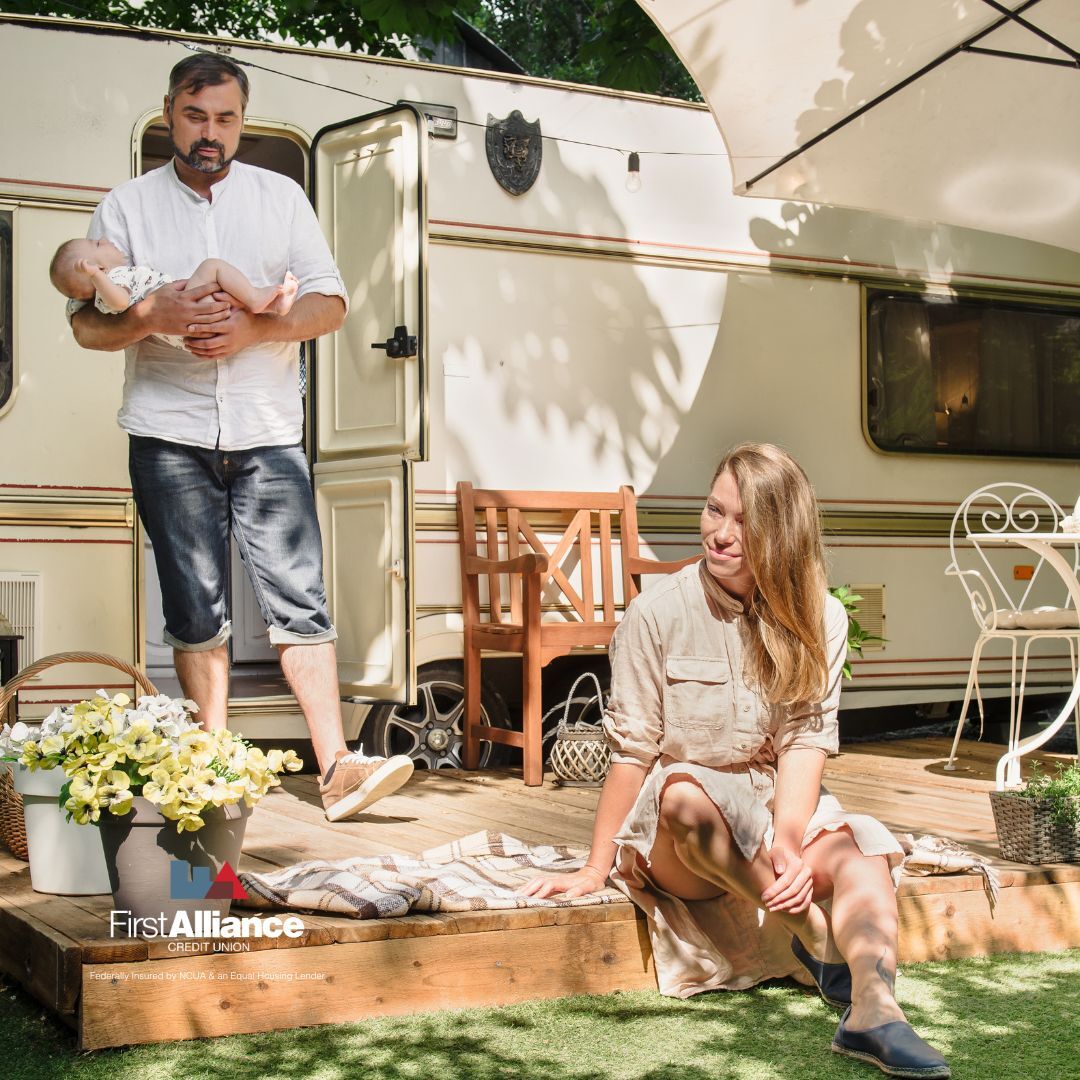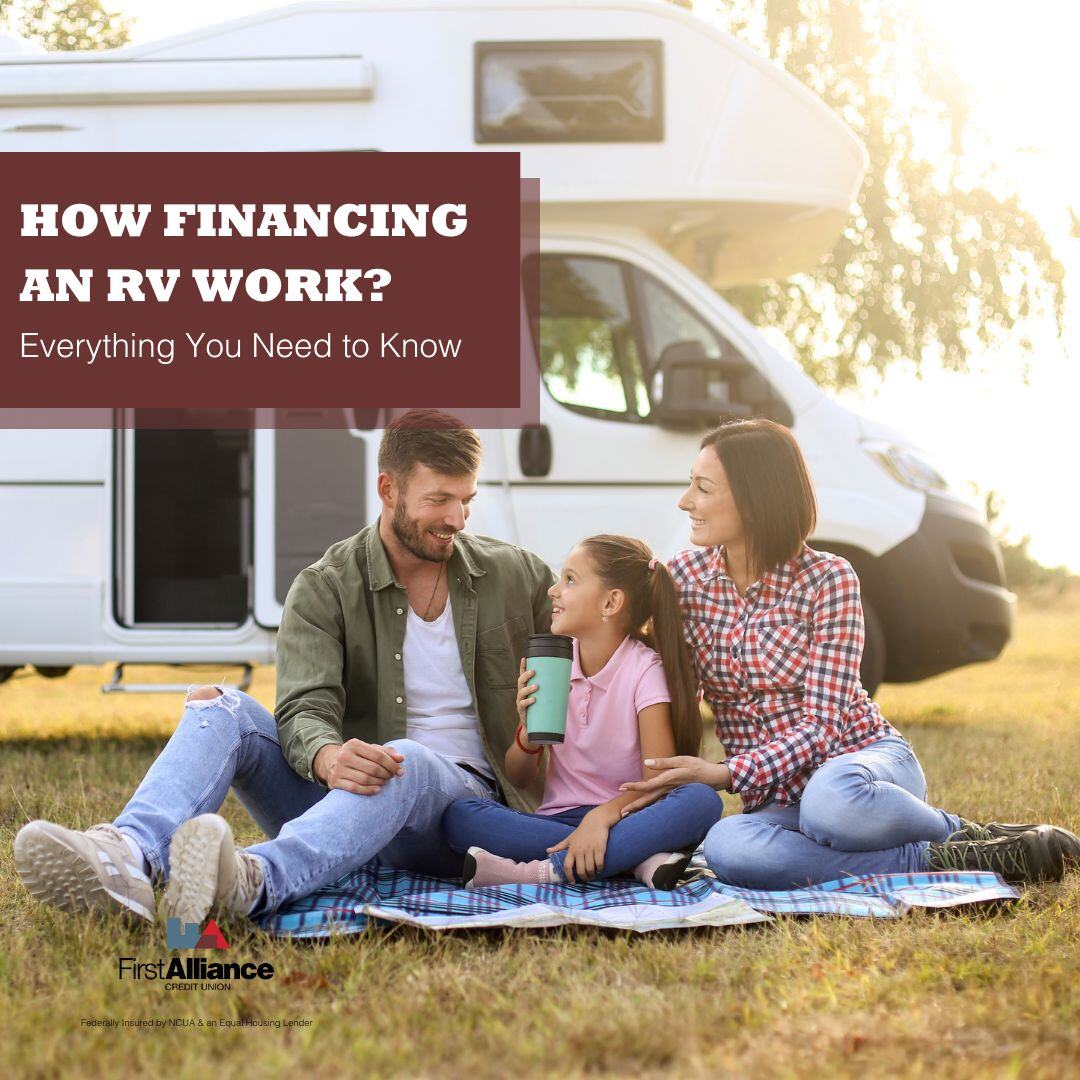How Financing an RV Work? Everything You Need to Know
Financing a recreational vehicle (RV) is a smart way to enjoy the freedom of the open road without a hefty upfront cost. Whether you’re dreaming of a...
5 min read
 Kamel LoveJoy
:
Jul 30, 2024 5:30:00 AM
Kamel LoveJoy
:
Jul 30, 2024 5:30:00 AM

Financing a camper can open up a world of travel and adventure without breaking the bank. Whether you're eyeing a sleek motorhome or a compact travel trailer, understanding your financing options is crucial. Let’s dive into the details of RV financing, focusing on key terms and considerations to help you make an informed decision.
A camper is a type of recreational vehicle (RV) designed to provide a mobile living space. Campers come in various forms, including travel trailers, fifth wheels, pop-up campers, and truck campers. They offer different levels of comfort and amenities, such as sleeping areas, kitchens, and bathrooms, making them ideal for camping trips and extended travel.
While the terms "RV" and "camper" are often used interchangeably, they have distinct meanings:
RV (Recreational Vehicle): This is a broad term that includes all types of vehicles designed for recreational use, including motorhomes (which have an engine and can be driven) and towable units like travel trailers and fifth wheels.
Camper: Typically refers to towable units that need to be hitched to a vehicle, such as travel trailers, pop-up campers, and truck campers. They do not have their own engine.
The most important thing to keep in mind about recreational vehicles is that they are not considered a necessity. This means that lenders usually consider these loans to be riskier than a standard auto loan. Understanding these differences is important when considering financing options, as the type of RV or camper can affect loan terms and eligibility.
What is an RV Loan?
An RV loan is a type of secured loan specifically designed to help you purchase a recreational vehicle, such as a camper, travel trailer, or motorhome. Your RV acts as collateral for the loan, meaning the lender can repossess it if you default on the payments. Alternatively, you can opt for an unsecured personal loan, which doesn't use the RV as collateral but typically comes with higher interest rates.
Secured RV Loans:
Secured loans are often offered by dealerships, credit unions like First Alliance Credit Union, and online lenders. These loans usually come with lower interest rates and longer terms, sometimes extending up to 20 years. However, they require the RV as collateral.

Cons:
Unsecured RV Loans:
Unsecured loans don't require collateral, making them a flexible option if you don’t want to risk your RV. These loans are typically easier to qualify for if you have good credit.
Pros:
Cons:
The process of securing an RV loan is similar to that of a car or home loan. Lenders will evaluate your creditworthiness, income, and debt-to-income ratio. The type, age, and condition of the RV also play a significant role in determining your loan terms.
Key Factors:
Credit Score: Higher scores typically secure better rates.
Income and Debt: Lenders assess your ability to repay the loan.
RV Specifications: Age, type, and condition of the RV impact loan eligibility and terms.
Financing a camper can be a flexible process with terms that vary based on your needs and the cost of the RV.
Typical RV Loan Terms:
10 to 15 years: Standard range for most RV Loans.
Shorter or Longer Terms: Available depending on the RV's cost and your financial situation.
Interest Rates and Fees: Can differ significantly from car loans, with a wider range of rates and associated cost.
Shorter-Term Loans: Help pay off your RV faster and save on interest.
Choosing the right loan term is crucial. While longer terms can lower monthly payments, shorter terms reduce the total interest paid, helping you own your RV outright sooner.
Current Rates:
As of 2024, RV loan interest rates can start around 8% for those with excellent credit. Rates can vary widely based on your credit profile and whether the loan is secured or unsecured.
Loan Terms:
Secured Loans: Terms can extend up to 15 years, especially for newer models.
Unsecured Loans: Generally capped at 5 years, with higher interest rates.

Check Interest Rates: Used campers might attract higher rates than new ones. Make sure to shop around for the best deals.
Consider Loan Terms: Secured loans for used RVs might have shorter terms compared to new RVs, so plan your budget accordingly.
Down Payment: A significant down payment can lower your monthly payments and interest rate.
Use an RV Loan Calculator:
Tools like the RV loan calculator available at First Alliance Credit Union can help you estimate your monthly payments and overall loan cost. Input the loan amount, interest rate, and term to get an idea of what to expect.
Credit Unions: Credit unions often provide competitive rates and terms for their members. They are typically more flexible and offer personalized service compared to larger banks.
Online Lenders: Online lenders can offer quick funding and a wide range of loan products. Be sure to compare rates and read reviews to ensure you're getting a good deal.
Dealerships: RV dealerships often have in-house financing or partnerships with lenders. While convenient, it's essential to compare these offers with other sources to ensure you're getting the best rate.
Consider Your Budget: Ensure that the monthly payments fit comfortably within your budget. Remember to factor in additional costs like maintenance, insurance, and travel expenses.
Loan Purpose: Decide whether the RV will be for occasional use or as a primary residence. Full-time RV living might come with additional restrictions from lenders.
Credit Score: Check your credit score before applying. If your score is on the lower side, consider taking steps to improve it to qualify for better rates.

Affordable Travel: A camper allows you to travel without the need for expensive hotel bookings or eating out for every meal. You can save money by cooking your own meals and staying at affordable campgrounds.
Flexibility and Freedom: Owning a camper gives you the freedom to travel whenever and wherever you want. There's no need to stick to a strict itinerary or booking schedule, allowing for spontaneous adventures.
Comfort and Convenience: Campers come equipped with various amenities, such as kitchens, bathrooms, and comfortable sleeping areas. This means you can enjoy the great outdoors without sacrificing the comforts of home.
Quality Family Time: Camping trips can be a great way to spend quality time with family and friends. It's an opportunity to disconnect from technology and reconnect with loved ones in a beautiful natural setting.
Explore New Places: A camper allows you to explore remote and scenic destinations that may not have traditional accommodations. You can enjoy breathtaking landscapes, national parks, and off-the-beaten-path locations at your own pace.
Financing a camper can make your dream of owning an RV a reality, especially for young adults in entry-level jobs. By understanding the types of loans available and considering your financial situation, you can find a financing option that works for you. Whether you choose a secured or unsecured loan, the key is to shop around, compare rates, and select the best terms to suit your needs. For more information and personalized advice, visit First Alliance Credit Union and explore your RV financing options today. Happy camping!

Financing a recreational vehicle (RV) is a smart way to enjoy the freedom of the open road without a hefty upfront cost. Whether you’re dreaming of a...

If your credit score has taken a few hits, you’re not alone. Maybe you missed a few payments, maxed out a credit card, or had a loan that got away...

Refinancing a loan means transferring your existing debt to a new lender, often to benefit from a better interest rate, more manageable payments, or...